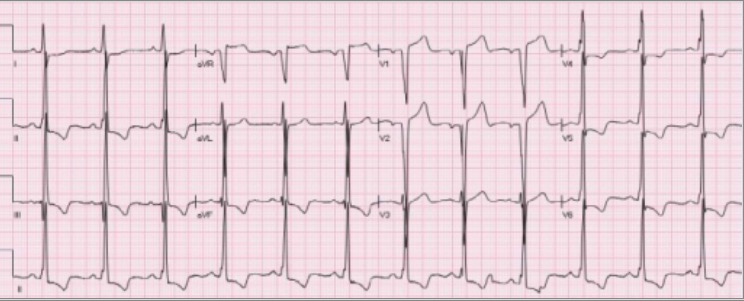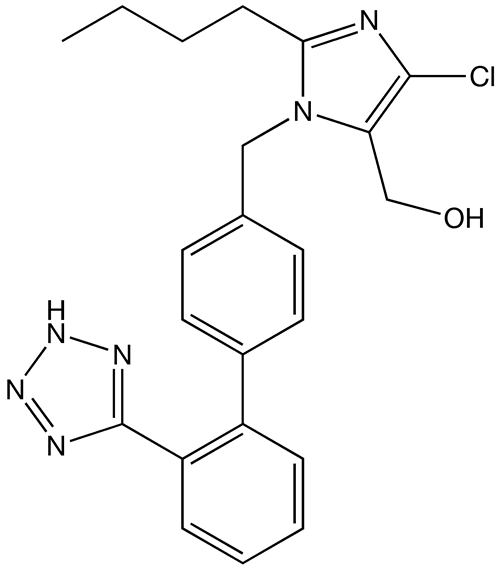Playlist
Show Playlist
Hide Playlist
Renin Angiotensin Aldosterone System – Hypertension
-
Slides 07 Cardiology Alpert EN.pdf
-
Reference List Cardiology.pdf
-
Download Lecture Overview
00:00 Now, here’s some very important information, physiologic information that relates to the drugs that we’re going to talk about next. It turns out that the kidney is really the master conductor of blood pressure in the body. So, just like the conductor of the orchestra, the kidney conducts the blood pressure regulation in the body. It’s interacting constantly with the central nervous system, with the sympathetic nervous system. But, the kidney has all kinds of built-in measures of blood pressure and releases hormones when the blood pressure is too low and cuts back on certain hormones, when the blood pressure is too high and these hormones hold on to salt and water and help to raise the blood pressure. 00:44 So, these little receptors are called baroreceptors, it means pressure… pressure receptors. It’s like a pressure gauge in the kidney that tells the kidney, “Hey you need to either increase some hormones that push blood pressure up or you need to decrease some hormones that push blood pressure down.” And what these hormones do, that are released from the kidney, the hormone is called renin. Renin relates to the Latin word for kidney. 01:10 Renin… renin means kidney. So, these hormones actually increase the blood pressure - A. 01:17 by constricting the blood… little blood vessels, but they also result in salt and water retention. So, you see, you increase the volume of the cardiovascular system, of the circulating blood. At the same time, you clamp down a little bit on the periphery and both of those things increase the cardiac output by increasing the volume and increase the peripheral resistance and they push the blood pressure up. 01:40 As I’ve mentioned a number of times in this lecture series, this system is particularly geared for defending against dehydration in a very dry environment and to protect the body at times of blood loss, for example, with hemorrhage. The system is called the renin-angiotensin-aldosterone system. I’ll show you a slide of it in a moment. But, basically, it is involved in holding on to salt and water. It signals the whole kidney system - don’t let too much salt and water go out and secondly, it increases the peripheral vascular resistance to increase the blood pressure. There’s also hormones released from the central nervous system that hold on to water, so called anti-diuretic hormone. So, there’s a whole interactive system here that’s focused on maintaining blood volume and maintaining blood pressure. 02:33 Now, this diagram actually shows you all of the biochemical components in the renin-angiotensin system. To just say it very simply, the kidney sees a lowering of blood pressure. It releases rennin. There is a whole series of chemical reactions from renin to angiotensinogen, to angiotensin I, Angiotensin II. And angiotensin I and II constrict the peripheral blood vessels and they signal the adrenal gland to reduce… to redu-… to release aldosterone and aldosterone holds on to salt and water. And also, it signals the central nervous system to release anti-diuretic hormone, so you hold on to water. You can see all of this interactive system is geared at maintaining the blood volume and maintaining the blood pressure. 03:26 Those of you who are going to be going on to study, some more in depth the physiology, this renin-angiotensin system is an important system studied in renal physiology and it is essential for blood pressure control. And so, I’m already hinting at this. No surprise. 03:46 What we try and do in patients with high blood pressure is block some of the aspects of this system and you will see that as we go along. And you saw on the diagram there, there were two drugs - ACE inhibitors, angiotensin converting enzyme inhibitors and angiotensin receptor blockers that actually block the effect of the renin-angiotensin system and thereby, lower blood pressure. We’re going to talk about those in more detail in just a couple of minutes. In any case, this system is critical for regulating blood volume and blood pressure. 04:14 It is, as I said before, the conductor of the orchestra for maintaining blood pressure and blood volume. This slide demonstrates the most commonly used angiotensin converting enzyme inhibitors, ACE inhibitors and the most commonly used angiotensin… angiotensin receptor blockers. Again, most doctors won’t use each of these drugs. They will pick one in each category and use them. 04:41 Most popular in the United States is lisinopril. It’s a once a day drug, it’s generic, it’s inexpensive, very effective with minimal side effects. The most important angiotensin receptor blocker is losartan, that’s the most popular one in the US, also generic, inexpensive and a very low side effect profile. These drugs, again, to remind you, are first line treatment for controlling hypertension. The ACE inhibitors, in an occasional patient, will set off an allergic reaction with swelling of the face and tongue and obviously, we don’t want to use a drug that causes swelling of the tongue in those patients. But, it’s a fairly rare number that does that. And both drugs can excessively lower blood pressure, make people light headed and dizzy, particularly at higher doses. So, you have to be very careful about regulating the dose. And both of them have the propensity to damage the kidney, if the kidney already has pre-existing kidney disease. So, if your kidneys are healthy, there’s no problem. But, if you have some kidney disease, you have to be careful about using these drugs and often we use very low doses or we don’t use them in people who already have had kidney injury, for example, from diabetes. 05:56 Another important first line drug in the control of hypertension are aldosterone blockers. 06:01 Remember, from the renin-angiotensin system, one of the things that happens is the adrenal gland is signaled to release aldosterone. Aldosterone goes to the kidney and causes it to hold on to salt and water, of course, raising the blood volume and raising the blood pressure. If you give blockers of aldosterone, you decrease the tendency to hold on to salt and water and you decrease the blood pressure. These drugs are very effective, they're also generic and also inexpensive with minimal side effects. These drugs are very popular. 06:34 They're also used in heart failure, again, because heart failure patients have retained too much salt and water. So, they're good in hypertension and they’re good in heart failure. By the way, each of these drugs that’s good for hypertension are also good for heart failure because one of the things we want to do is you remember from the heart failure lecture, is we want to decrease the work of the heart. 06:55 You lower the blood pressure, the heart has to work less and maybe it can heal itself when it’s been injured. Here we see a little diagram of the kinds of things that an aldosterone inhibitor does. It decreases the likelihood of holding on to sodium. As you see on the left hand part of the slide, it decreases the likelihood of holding on to water. It also has a very beneficial effect, it holds on to potassium. 07:20 So, the tendency for hypokalemia, remember I talked about, you don’t want hypokalemia because it can cause cramps and heart arrhythmias? Well, aldosterone blockers actually increase potassium and they work against hypokalemia. Also, they can work against scarring in the heart, as you see on the right hand side. Collagen is one of the major components of scar. And so, they can actually improve the flexibility of the heart by a small amount. 07:50 So, they have a number of benefits in patients with high blood pressure. 07:54 Well, let’s talk about Beta Blockers. We talked about these drugs both for heart failure
About the Lecture
The lecture Renin Angiotensin Aldosterone System – Hypertension by Joseph Alpert, MD is from the course Cardiac Diseases.
Included Quiz Questions
Renin aids in vasoconstriction. Which organ in the body produces renin?
- Kidney
- Liver
- Lungs
- Bones
- Salivary glands
Which of the following portions of the kidney is mainly involved in regulating blood pressure?
- Juxtaglomerular apparatus
- Descending loop of henle
- Ascending loop of henle
- Bowman’s capsule
- Collecting duct
Which of the following blood pressure regulating hormones is produced in the adrenal gland?
- Aldosterone
- Angiotensin 1
- Angiotensin 2
- Renin
- Antidiuretic hormone
Which of the following is reabsorbed from the urine to compensate for hypotension by increasing blood volume?
- Sodium
- Magnesium
- Potassium
- Chloride
- Bromide
Which of the following is a side effect of angiotensin converting enzyme (ACE) inhibitors?
- Angioedema
- Hepatitis
- Cardiomyopathy
- Stroke
- Hypokalemia
Customer reviews
5,0 of 5 stars
| 5 Stars |
|
2 |
| 4 Stars |
|
0 |
| 3 Stars |
|
0 |
| 2 Stars |
|
0 |
| 1 Star |
|
0 |
Dr. Alpert is incredibly knowledgeable and explains everything in such an easy way. Everything makes a lot more sense now. Thank you!
very helpful thank u Dr.Joseph Alpert . ..





